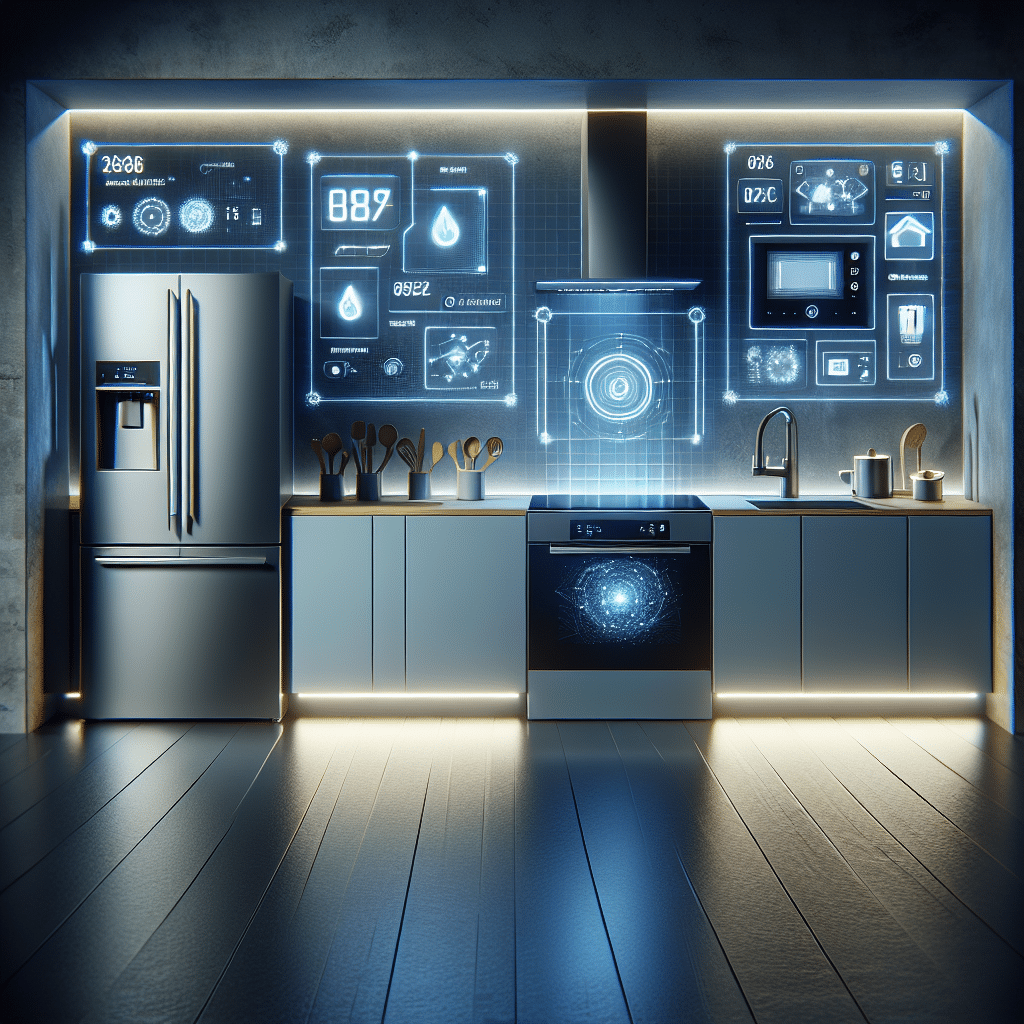Understanding Energy-Efficient Smart Appliances
As technology advances, homes are becoming smarter. Energy-efficient smart appliances are at the forefront of this trend, combining functionality with ecological responsibility. These devices are designed to consume less energy while delivering superior performance, thus reducing utility bills and minimizing environmental impact.
What Are Smart Appliances?
Smart appliances are devices that connect to the internet, allowing users to control them remotely via smartphones, tablets, or smart home hubs. These appliances incorporate cutting-edge technology, sensors, and artificial intelligence to adapt to user habits, optimize performance, and enhance convenience. Popular examples include smart refrigerators, washing machines, thermostats, and dishwashers.
Benefits of Energy-Efficient Smart Appliances
-
Energy Savings: Energy-efficient smart appliances are designed to consume less power, which translates into lower energy bills. For instance, Energy Star-certified appliances can significantly reduce energy usage compared to standard models.
-
Convenience: With remote operation, users can adjust settings from virtually anywhere. This means you can start the dishwasher while at work or regulate the temperature of your home on the way back from vacation.
-
Enhanced Performance: Smart appliances often feature advanced technologies such as load sensing and self-diagnosis, which increases efficiency and reliability.
-
Sustainability: Using energy-efficient appliances helps reduce greenhouse gas emissions, making them a more sustainable choice compared to conventional appliances.
-
Awareness: Smart appliances usually have integrated energy monitoring features, allowing users to track consumption patterns and identify areas for improvement.
Key Features of Energy-Efficient Smart Appliances
-
Smart Sensors: Many smart devices are equipped with sensors that detect occupancy, load size, and ambient environment, adjusting energy consumption accordingly. For instance, a smart thermostat can learn your schedule and optimize heating and cooling, effectively reducing energy use when you’re not home.
-
Mobile Connectivity: Most appliances can be controlled via apps. These applications enable users to monitor energy usage, receive notifications for maintenance needs, and remotely program settings.
-
Automatic Updates: Smart appliances can receive firmware updates, ensuring they benefit from the latest technologies and efficiency standards without requiring manual intervention.
-
Voice Control: Integration with smart speakers allows for hands-free operation, enabling users to operate appliances through voice commands.
-
Scheduling: Smart appliances can be programmed to run during off-peak hours when electricity rates are lower, maximizing cost savings.
Types of Energy-Efficient Smart Appliances
Smart Refrigerators
Modern smart refrigerators come with features like internal cameras, touch screens, and Wi-Fi connectivity, allowing users to see contents remotely, manage expiration dates, and even create shopping lists. Energy-efficient models use less electricity, often utilizing LED lighting and improved insulation methods to keep energy consumption low.
Smart Washing Machines
Smart washing machines can analyze load sizes and fabric types, automatically adjusting water levels and washing times. Many models have eco-friendly cycles that use cold water and energy-efficient spin cycles, saving both water and electricity.
Smart Thermostats
Smart thermostats can learn household routines and preferences, automatically adjusting heating and cooling schedules for optimal energy savings. They provide insights into energy consumption and can be programmed to prioritize energy-saving modes when the home is empty.
Smart Dishwashers
These dishwashers feature soil sensors to determine how dirty the dishes are and adjust the wash cycle accordingly. Some models also offer quick cycles and eco-friendly settings to minimize water and energy use while maintaining cleanliness.
Smart Ovens and Ranges
Smart ovens enable remote monitoring and control, allowing users to preheat the oven or adjust cooking times via a smartphone app. Energy-efficient models incorporate features like convection cooking, which reduces cooking time and energy use.
Cost Considerations
Though energy-efficient smart appliances can have a higher upfront cost, they typically offer substantial long-term savings on energy bills. The investment pays off through energy savings, performance efficiency, and potentially lower costs due to reduced maintenance issues over time. Many states offer rebates and financial incentives for purchasing Energy Star-certified appliances, further offsetting initial costs.
Top Brands of Smart Appliances
-
Samsung: Known for its diverse range of smart kitchen and laundry appliances, Samsung integrates features like SmartThings for full home control.
-
LG: Their smart appliances feature AI technology to learn user habits, improving efficiency and performance. LG’s ThinQ app provides extensive control options.
-
Whirlpool: Committed to energy efficiency, Whirlpool’s range of smart appliances includes innovative laundry solutions and adaptive cooling technology in refrigerators.
-
GE Appliances: With a focus on user-friendly technology, GE’s smart appliances come with various connectivity options, making them a popular choice among modern consumers.
-
Bosch: Renowned for its high-quality dishwashers and kitchen appliances, Bosch combines sleek design with energy-efficient performance.
Future of Smart Appliances
As technology continues to evolve, the future of smart appliances looks promising. Innovations in machine learning and artificial intelligence will likely enhance the effectiveness of these appliances. Additionally, IoT (Internet of Things) advancements could enable even better integration with home automation systems, leading to greater efficiency and convenience.
Tips for Choosing Energy-Efficient Smart Appliances
-
Look for Energy Star Ratings: Ensure that the appliance meets energy efficiency guidelines set by the U.S. Environmental Protection Agency. Energy Star-rated appliances often offer substantial savings.
-
Verify Appliance Capacity: Choose an appliance capacity that fits your household needs. Oversized appliances waste energy.
-
Consider Advanced Features: Evaluate what smart features align with your lifestyle. Prioritize appliances that offer the best balance between convenience, performance, and energy savings.
-
Research Reviews: Check consumer reviews and ratings to understand real-world performance and reliability.
-
Assess Warranties: A comprehensive warranty can provide peace of mind and potential cost savings in the long run.
Transitioning to Smart Appliances
Transitioning to smart appliances might seem daunting, but with a methodical approach, it could significantly enhance your living space. Start by gradually replacing older appliances with energy-efficient models, focusing on the most used devices first to maximize impact.
Taking the initiative to invest in smart, energy-efficient appliances not only aids in reducing utility costs but also contributes to a more sustainable future. As these technologies become more integrated into everyday life, embracing energy-efficient innovations supports a greener planet while enhancing home comfort and convenience.
